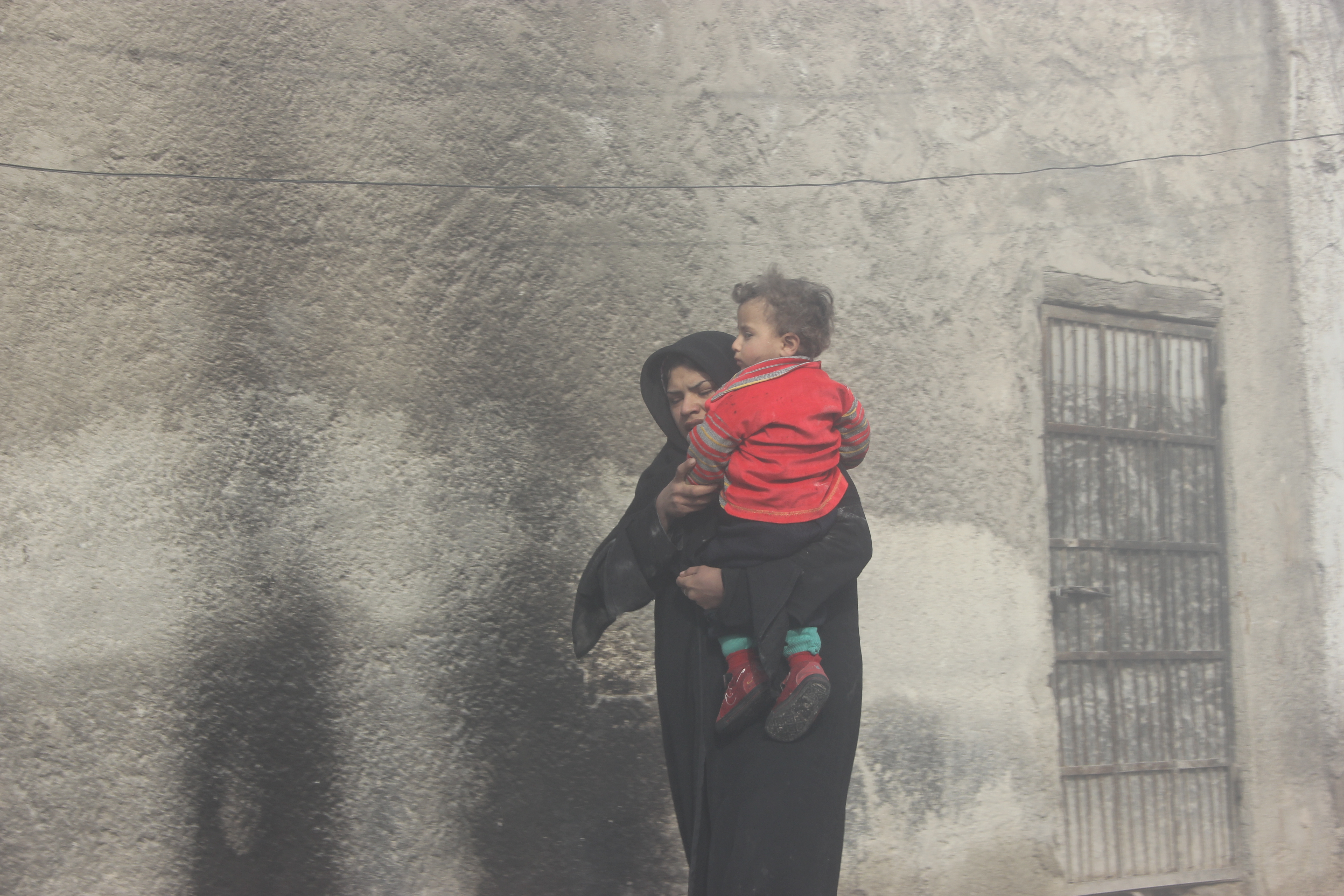The Martyr’s Wife

She will always remember the fourth day of Eid al-Adha in 2013. That was the day she took her infant daughter, just under a year old, and asked her husband to drive her to her brother’s house.

She had no idea that this would be the last time she would sit by his side, the last time she’d be with the companion with whom she’d shared 16 years of all the sweetness and bitterness life had to offer.
She climbed into the front seat of the car while the kids clambered into the back. The car began to move off, taking them to her brother’s house. She had no idea that it was taking her husband toward the last few hours of his life.
“Don’t be late picking us up tonight,” she told him.
“I thought you said you missed your brother,” he replied with a smile. “I was going to leave you there until late, and when I came back I’d boss you all around.”
He told her to take care of herself and the kids, gazing into her eyes for a long moment. Then he turned the car around and drove off. He had arranged to take a friend to Qahtania, a village about 35 kilometres away from Qamishli.
Midnight came and her husband had still not come back to fetch them. With the children yawning sleepily, she asked her brother to take her home.
Her brother dropped her off. When she opened the front door, she was shocked to find a crowd of people gathered there, their faces all set in grim frowns.
Her heart seemed to contract in her chest. She said nothing, but began looking from face to face, trying to find her husband. Everyone was there but him.
One of the women approached her and introduced herself as a representative of the Families of the Martyrs Foundation, an organisation that deals with relatives of people killed in the conflict, set up by the Democratic Union Party in Hassaka.
“What do you want?” she asked the woman in confusion. “Our family doesn’t have any young men in the People’s Protection Units and my husband has nothing to do with any military affairs.”
The woman, who had a photo of Kurdish fighters killed by Islamic State hanging on her chest, said nothing in reply.
Her brother-in-law approached her and grabbed her hand, avoiding her eyes. Suddenly she was drenched in perspiration, even though it was a mild autumn night.
A deathly silence fell over the people gathered in her living room.
Her brother-in-law finally summed up the courage to say, in a halting voice, “A– is dead.”
Her blood froze and her legs grew heavy. She prayed to God that she had misheard, and that her husband was absent because he was working late. This often happened – he was a blacksmith but he also loved amateur dramatics and sometimes went to rehearsals after work.
She weaved her way through the crowd, her eyes scanning them, searching their faces for the trace of a lie.
“How could this have happened?” she said to herself. “He just went to take a friend to Qahtania. My husband is a civilian and it’s a safe area – there are no battles taking place.”
She had no answers herself.
She clutched her small daughter to her chest. The girl’s first birthday was just six days away, and her father had been preparing a small party. They already had a girl and two boys, but this latest addition held a special place in his heart.
As soon as he walked through the door after work he would run to gather her up in his arms and play. It was as if he was trying to give her extra attention and tenderness to make up for what he would be unable to provide later in her life.
She was taken to have one last farewell look at her husband. The new day had begun to dawn as she stood before a black body-bag, uncertain what it held.
Words began to filter into her head – a lorry laden with explosives had pulled up to a military checkpoint protecting the city. Fate determined that her husband’s car should pass by at the very second the truck-bomber decided to detonate. Shrapnel from the blast hit her husband’s car and it too exploded.
She didn’t know where she drew the strength to stand there and look at that black bag. She stretched her hand out to open it, to cast one last look at her husband.
Just then she felt a strong hand on her shoulder and turned to find her brother standing by her side. He opened just the top of the bag slightly. She had only time to glimpse her husband’s eyes. They seemed to say, “Goodbye, my life’s companion. Take care of yourself and the children.”
She fainted, and was made to sit down on a chair and drink some water. She cradled her small daughter and her tears began falling like rain.
She gazed into her daughter’s eyes as one of the women placed a small photo of her husband around her neck.
“Now you are the wife of a martyr,” the woman said, trying to comfort her. “There are thousands like you.”
